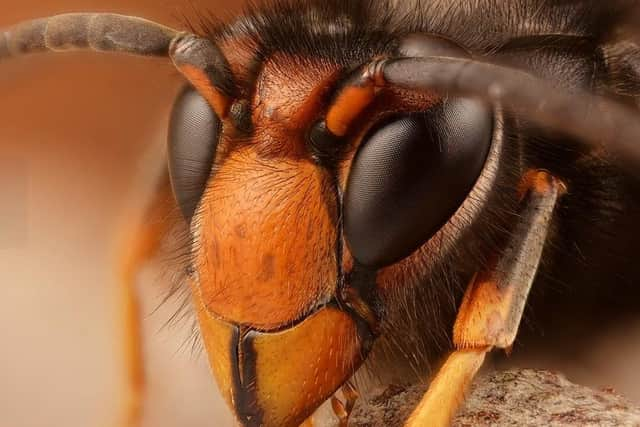Sussex bees under threat from killer hornets which have panful sting
and live on Freeview channel 276
As well as having a very painful sting, the Asian hornet can eat up to 50 honey bees a day after decapitating them and pulling off their wings. Should they become established here, the Asian hornet would pose an enormous threat to honey bees that are already struggling due to loss of habitat and the impact of pesticides.
Hornet stings are more painful to humans than typical wasp stings because of the chemicals found in hornet venom. Individual hornets can sting repeatedly, unlike honey bees. Its sting has been described as a feeling similar to being stabbed by a red-hot needle. It can cause severe swelling and ache for a few days.
Advertisement
Hide AdAdvertisement
Hide AdGovernment department Defra considers the Asian hornet as an invasive non-native species and asks people to report sightings. A Defra spokesperson said: “This is a highly effective predator of insects, including honey bees and other beneficial species, which can cause significant losses to bee colonies, and potentially other native species. Vigilance is particularly required in southern parts of England and Wales and around major ports.”


The Asian hornet arrived in France in 2004, hitching a ride on flower pots exported from China, and spread rapidly. A number of sightings have been recorded in the UK since 2016, including at Dungeness, in Kent, just a few miles away from Sussex.
The large insects are identifiable for the yellow ‘socks’ on their legs, bright orange face and black thorax. The Asian hornet is active mainly between April and November.
The British Beekeepers Association has called on the public to report any potential sightings on its Asian Hornet watch app. The RSPB, which has nature reserves in Sussex, is also concerned about the Asian hornet.
Advertisement
Hide AdAdvertisement
Hide AdA spokesperson said: “The concern around the Asian hornet is that it is a significant predator of bees. In France, it has consumed large numbers of bees, including the well-known European honey bee and many lesser-known solitary and colonial bee species. We are concerned about the impacts of Asian hornets on bees, as these pollinating species are an essential component of well-functioning ecosystems.”